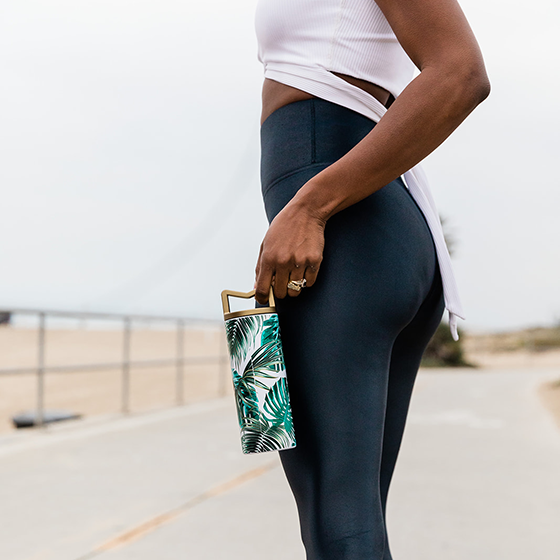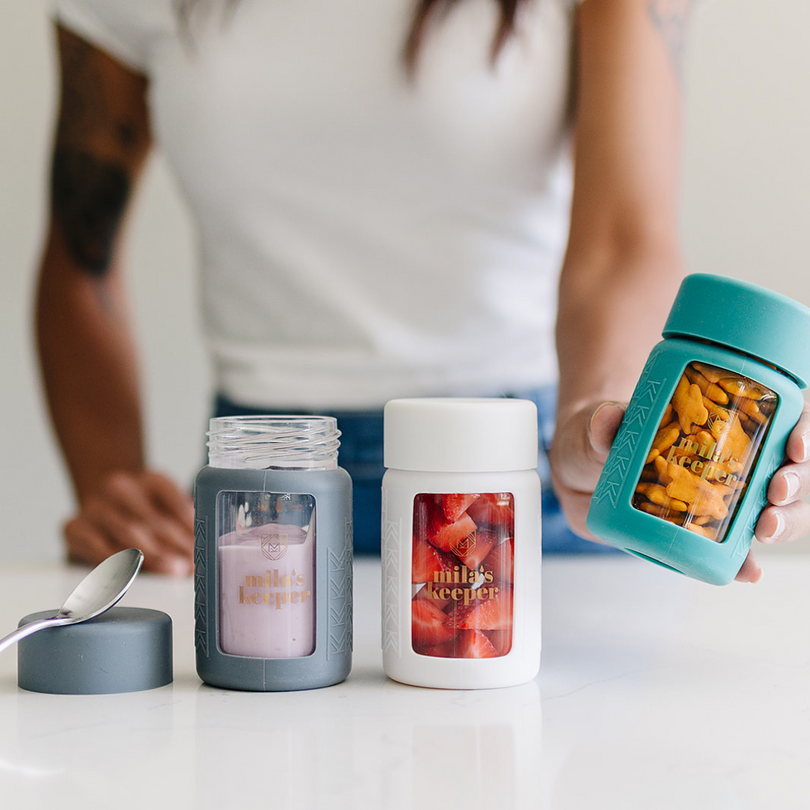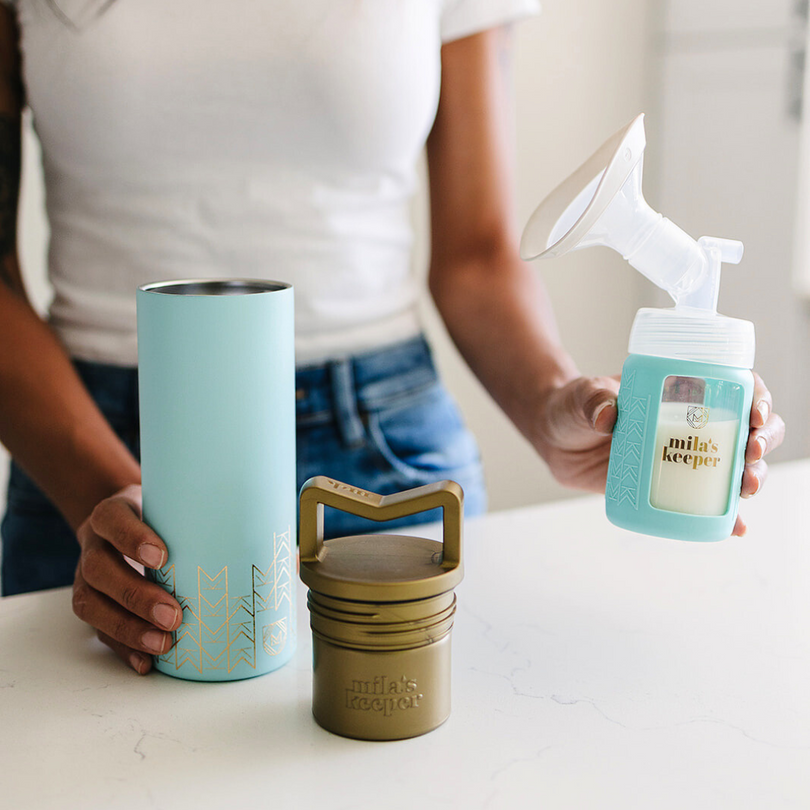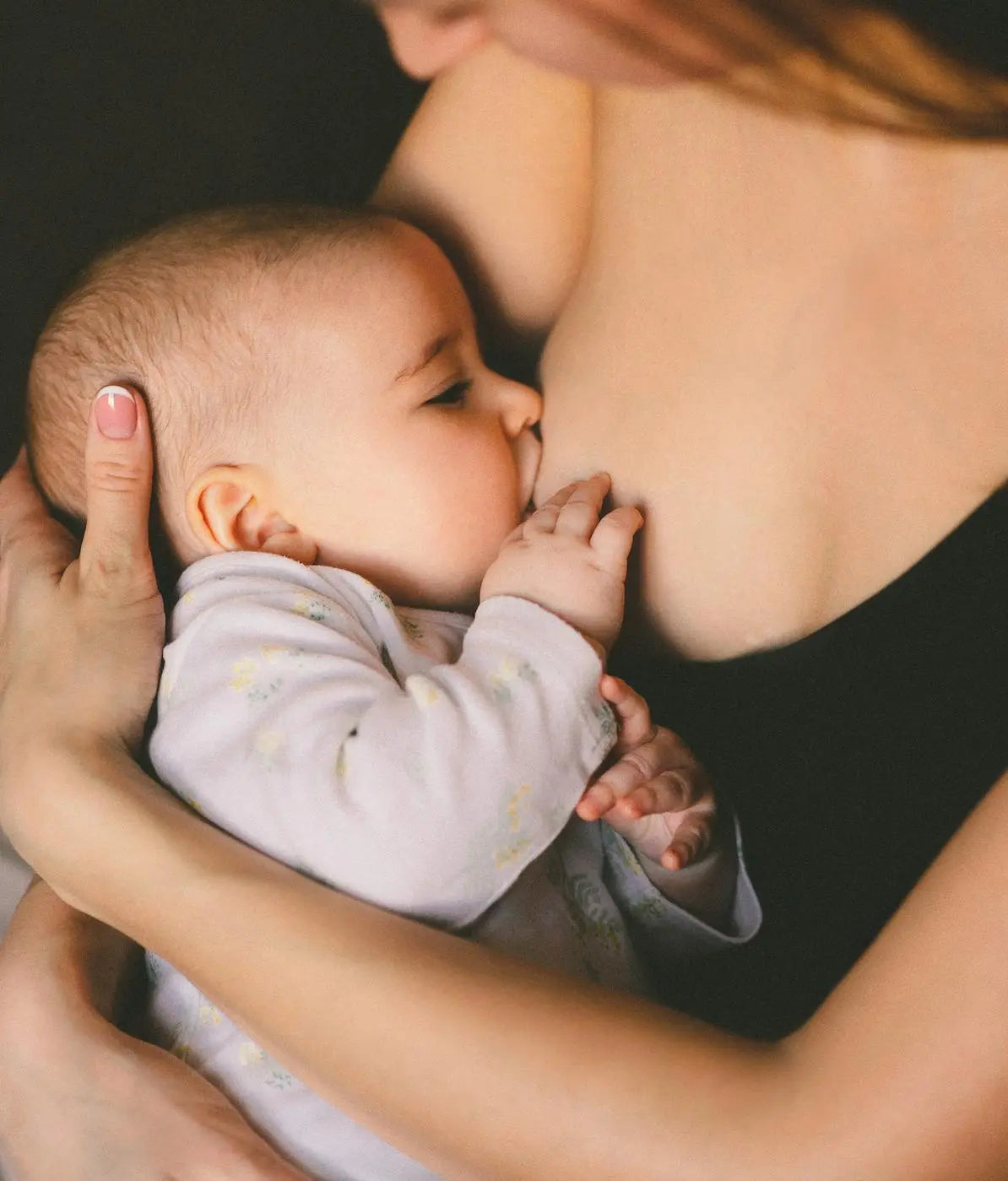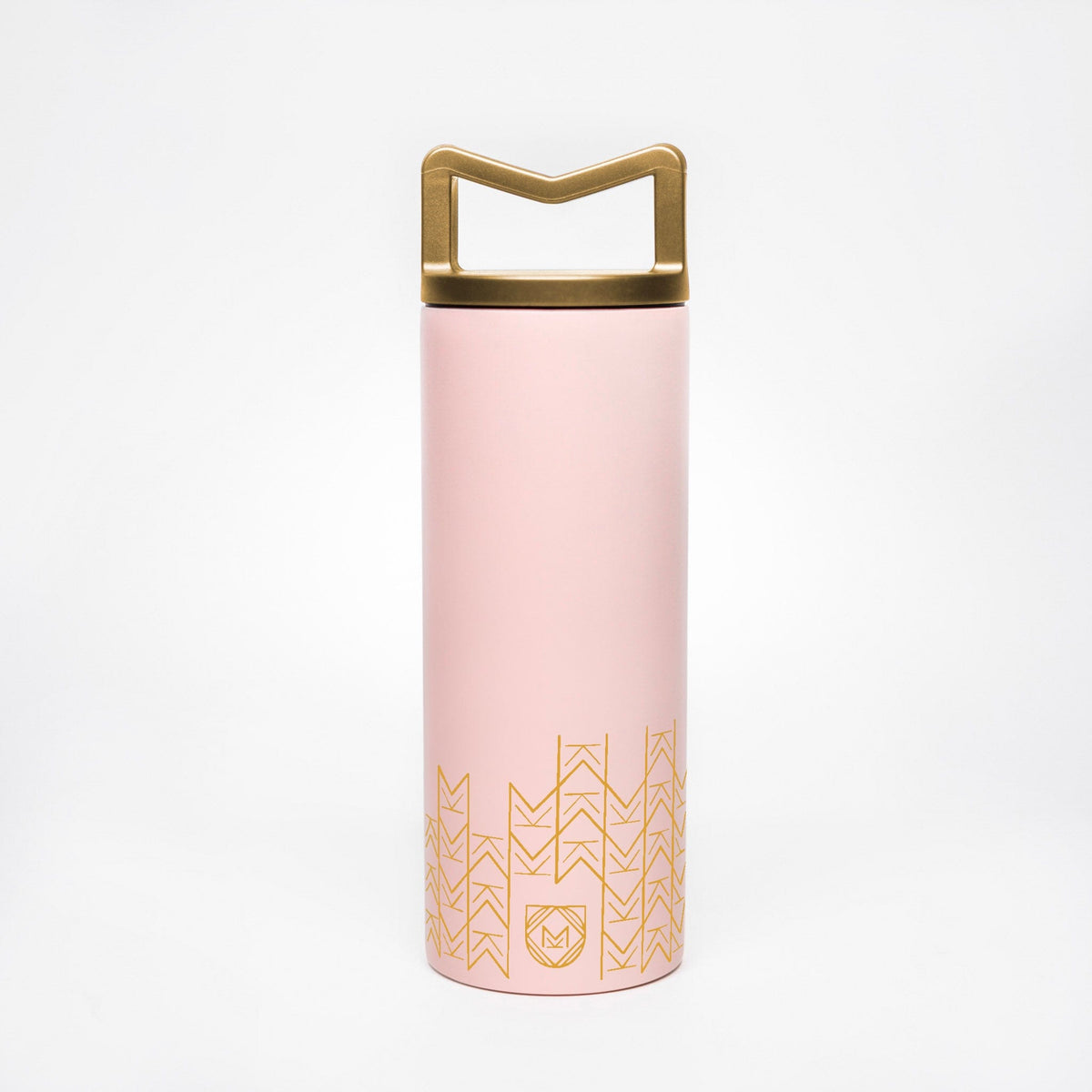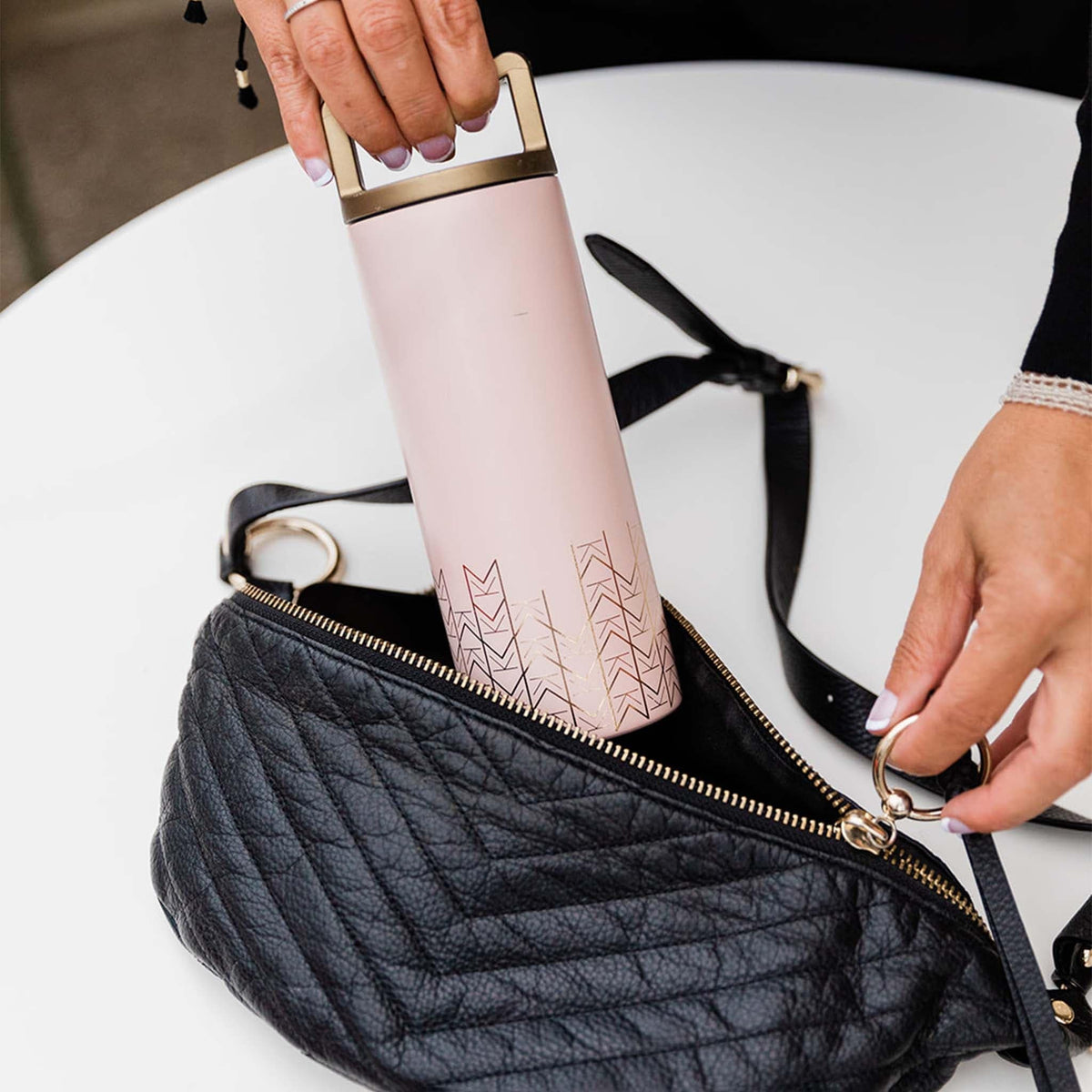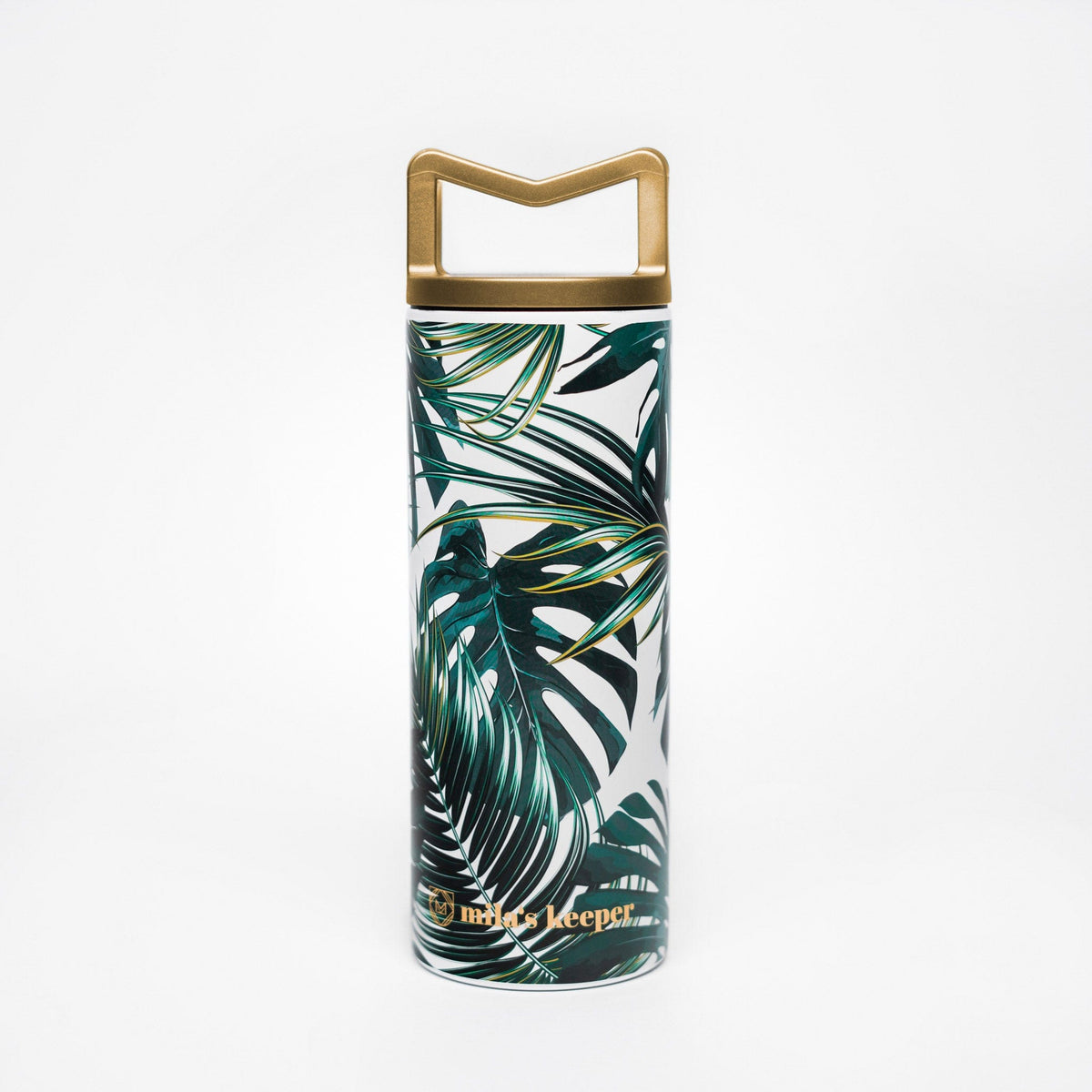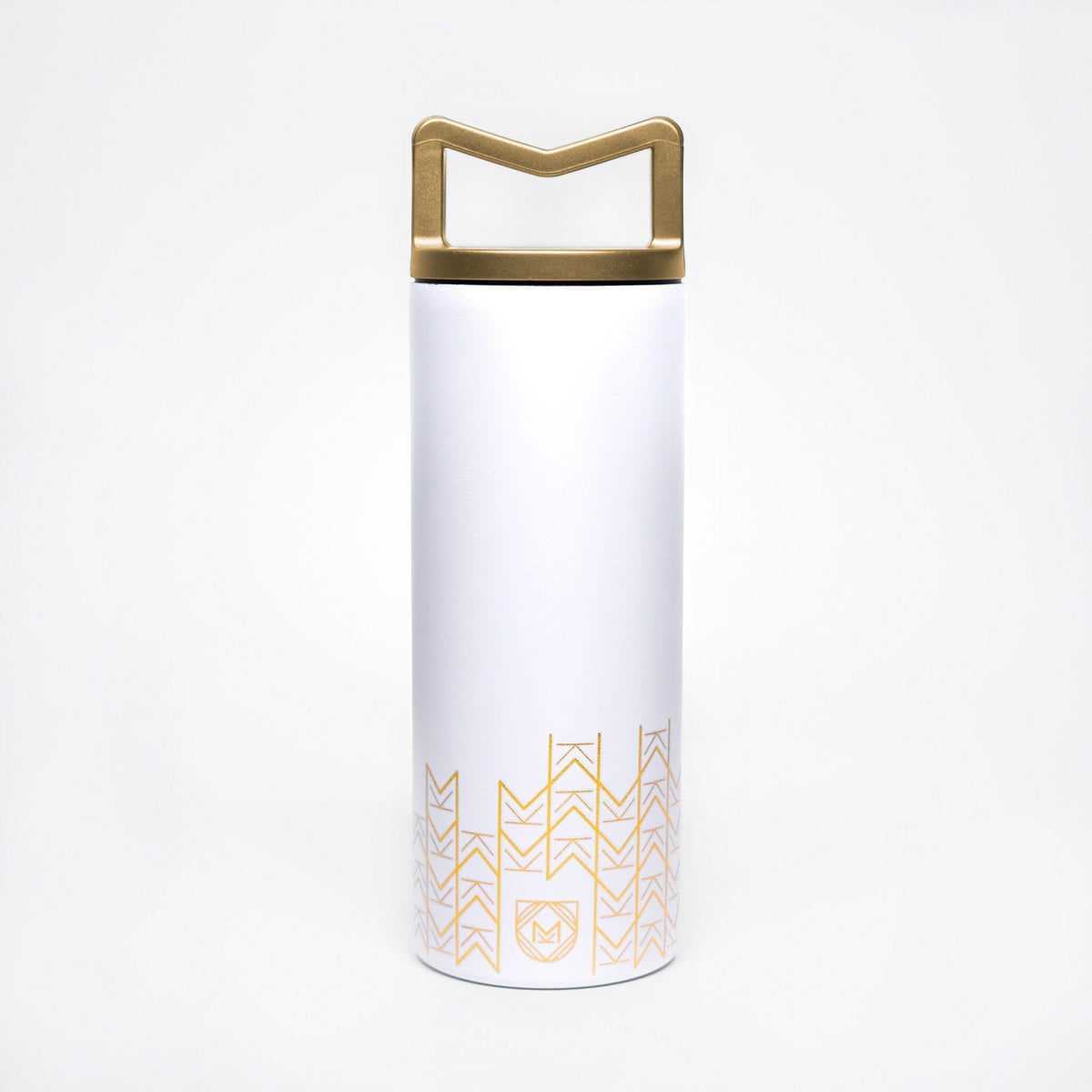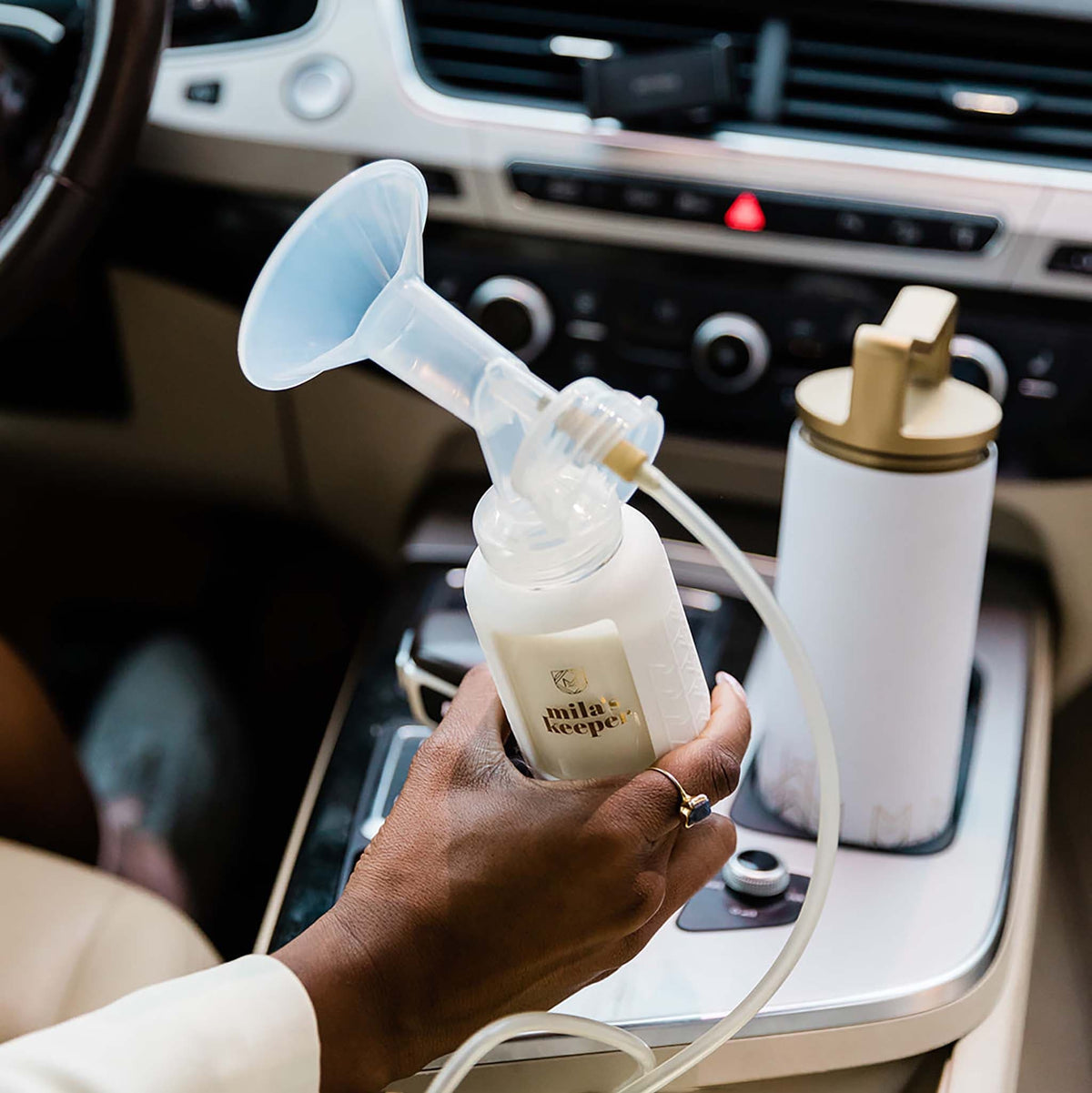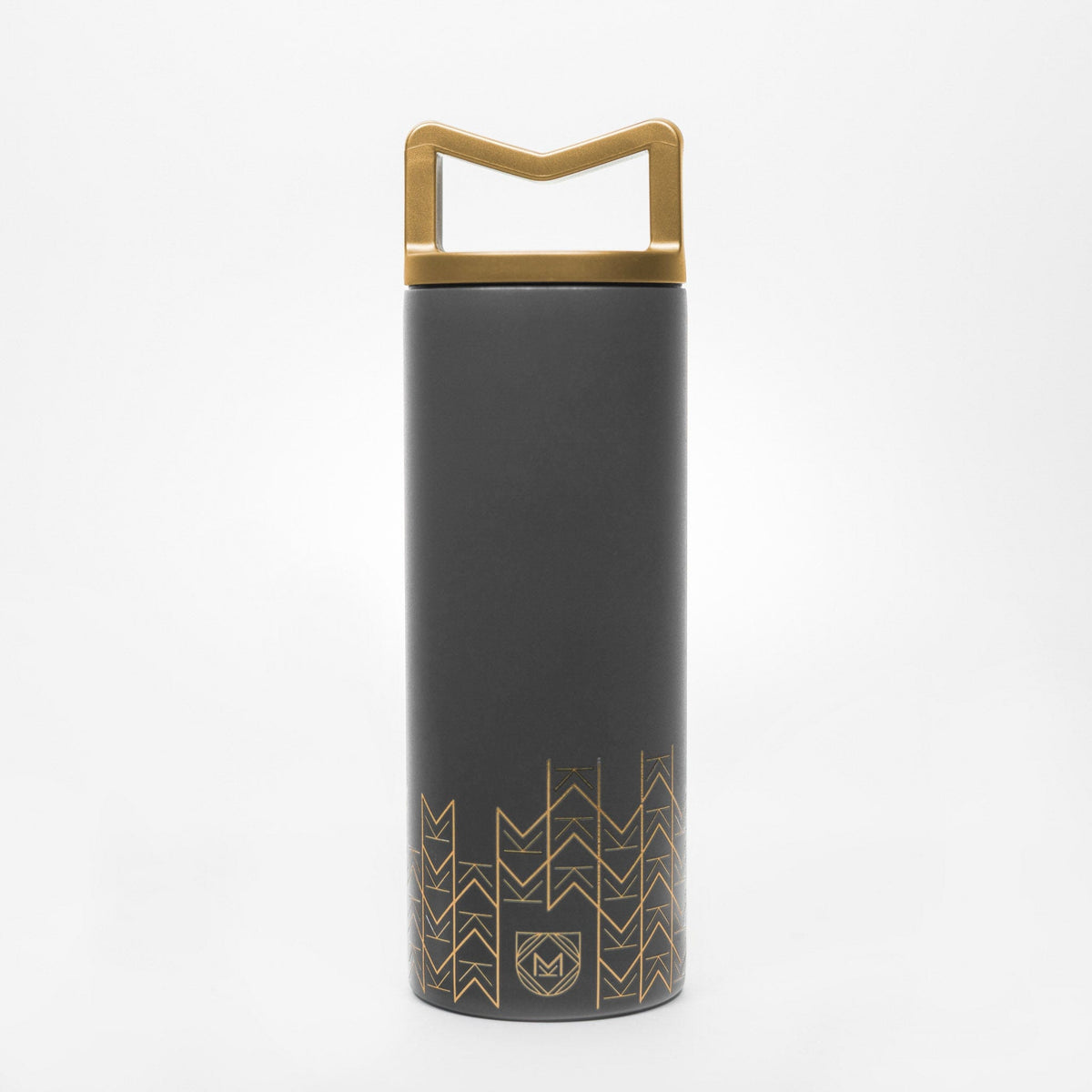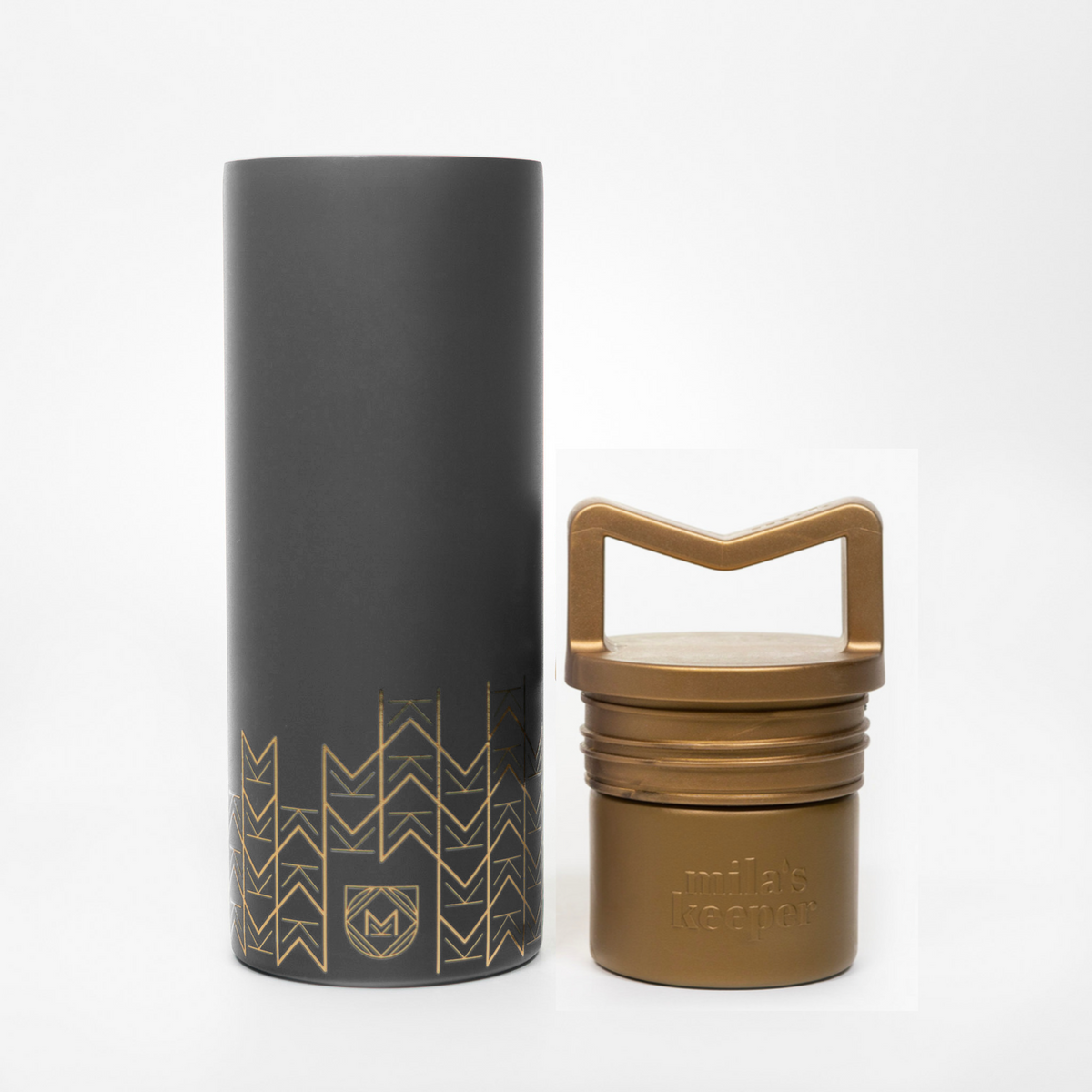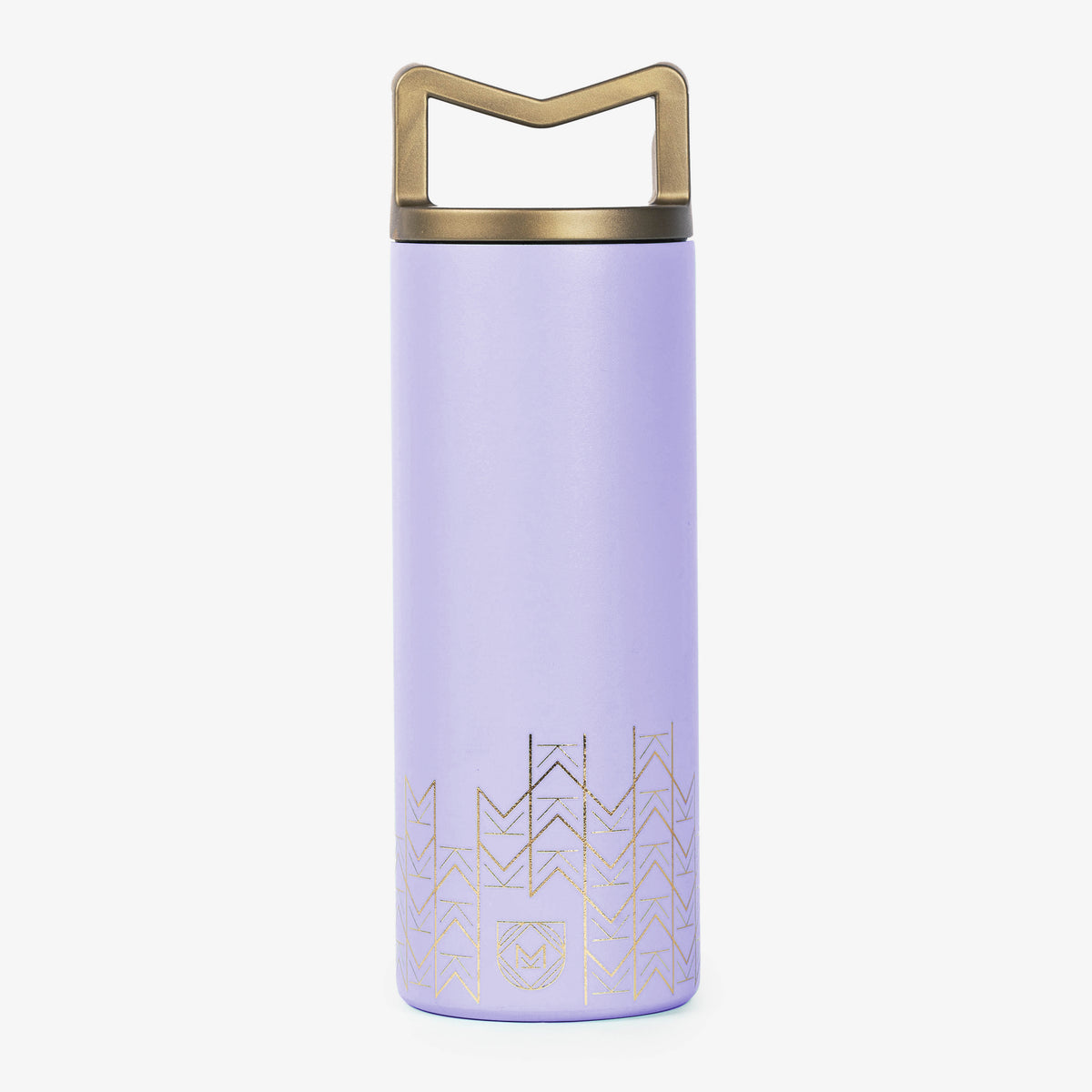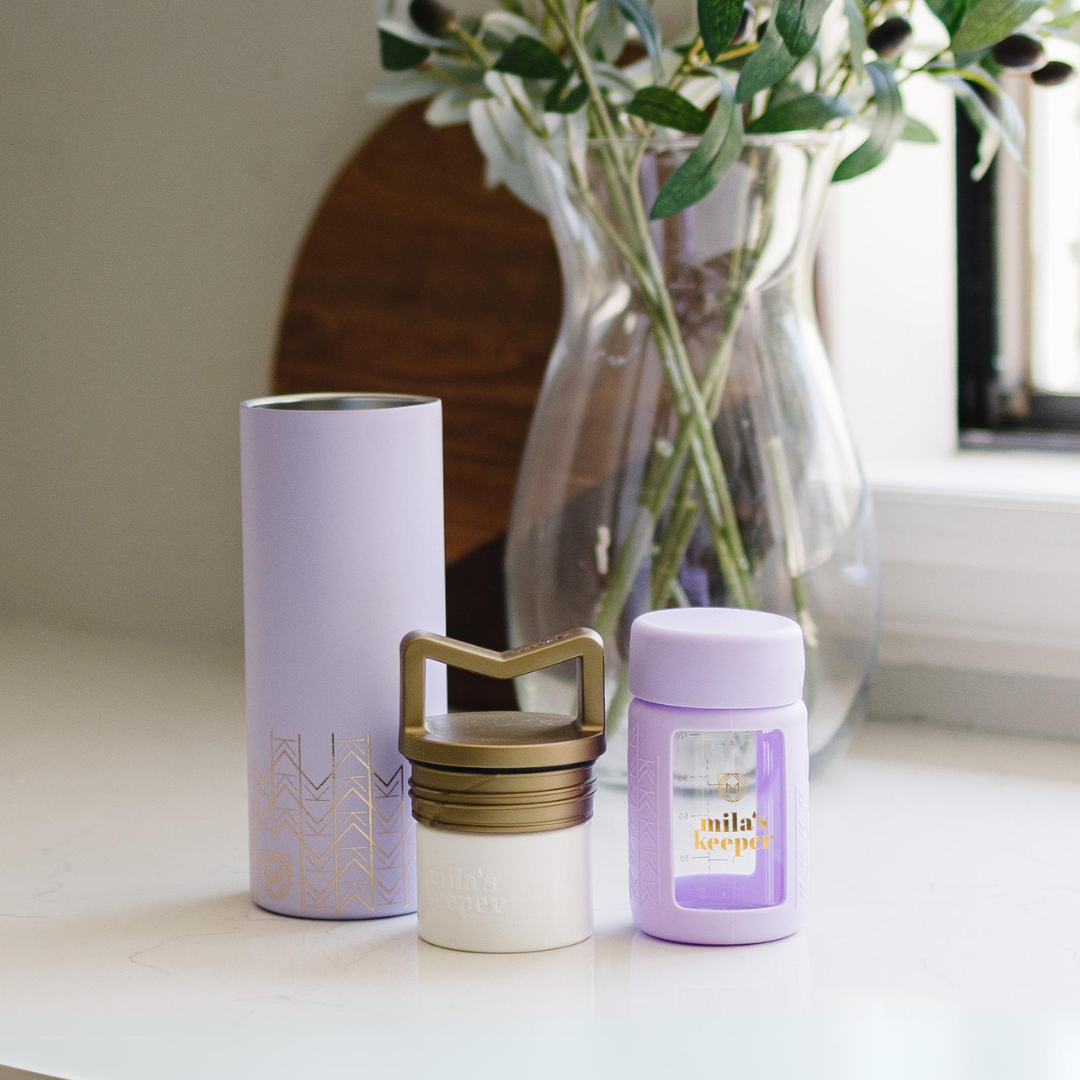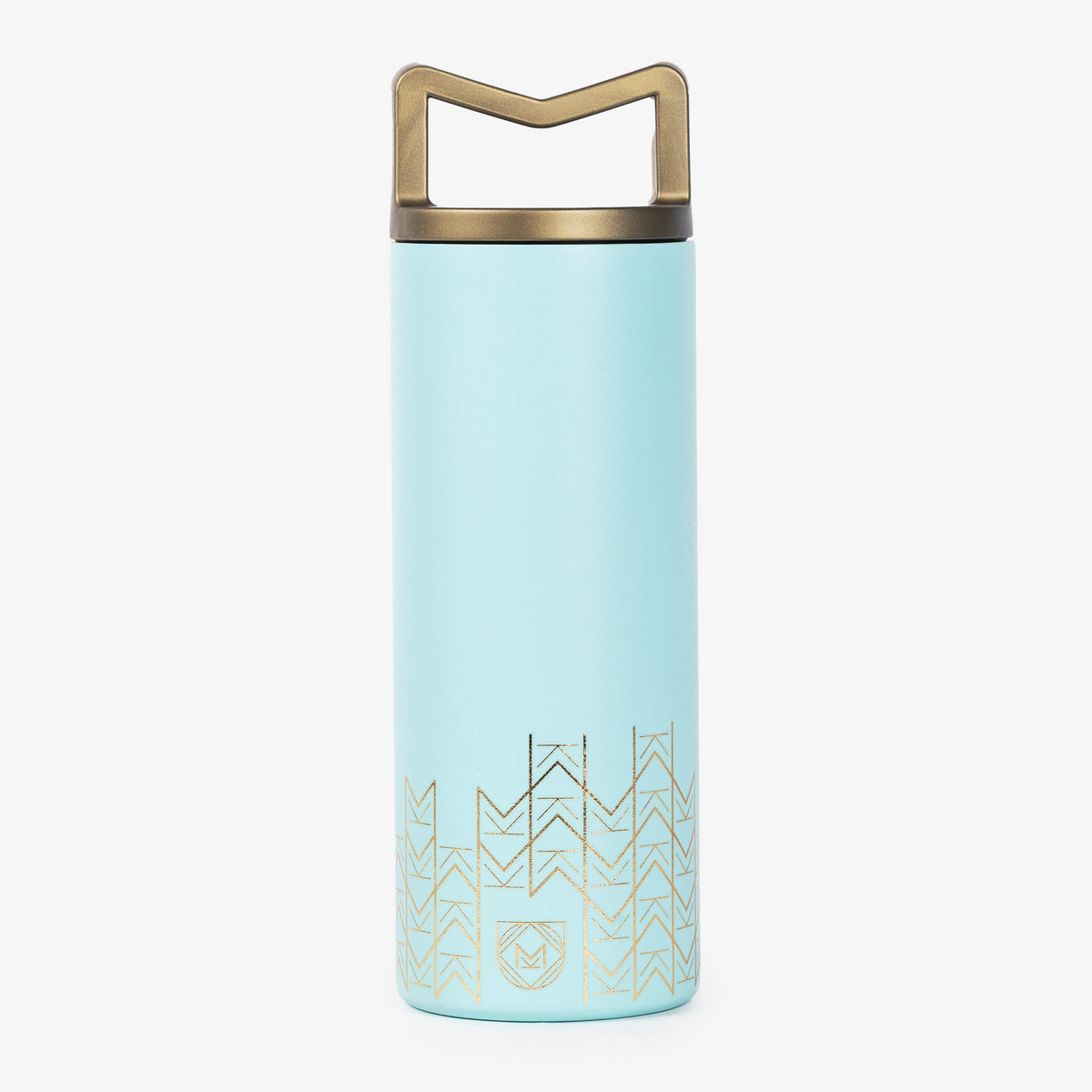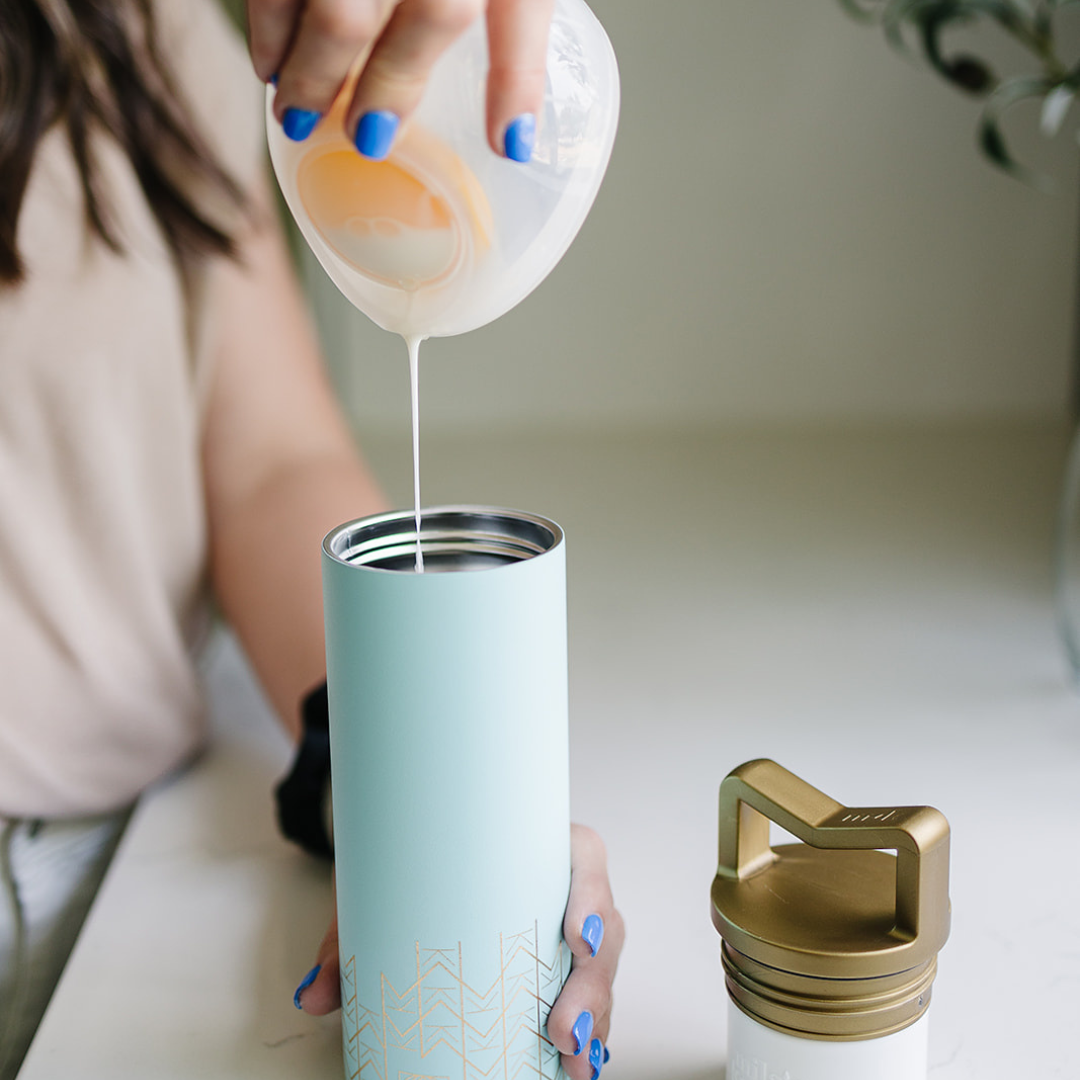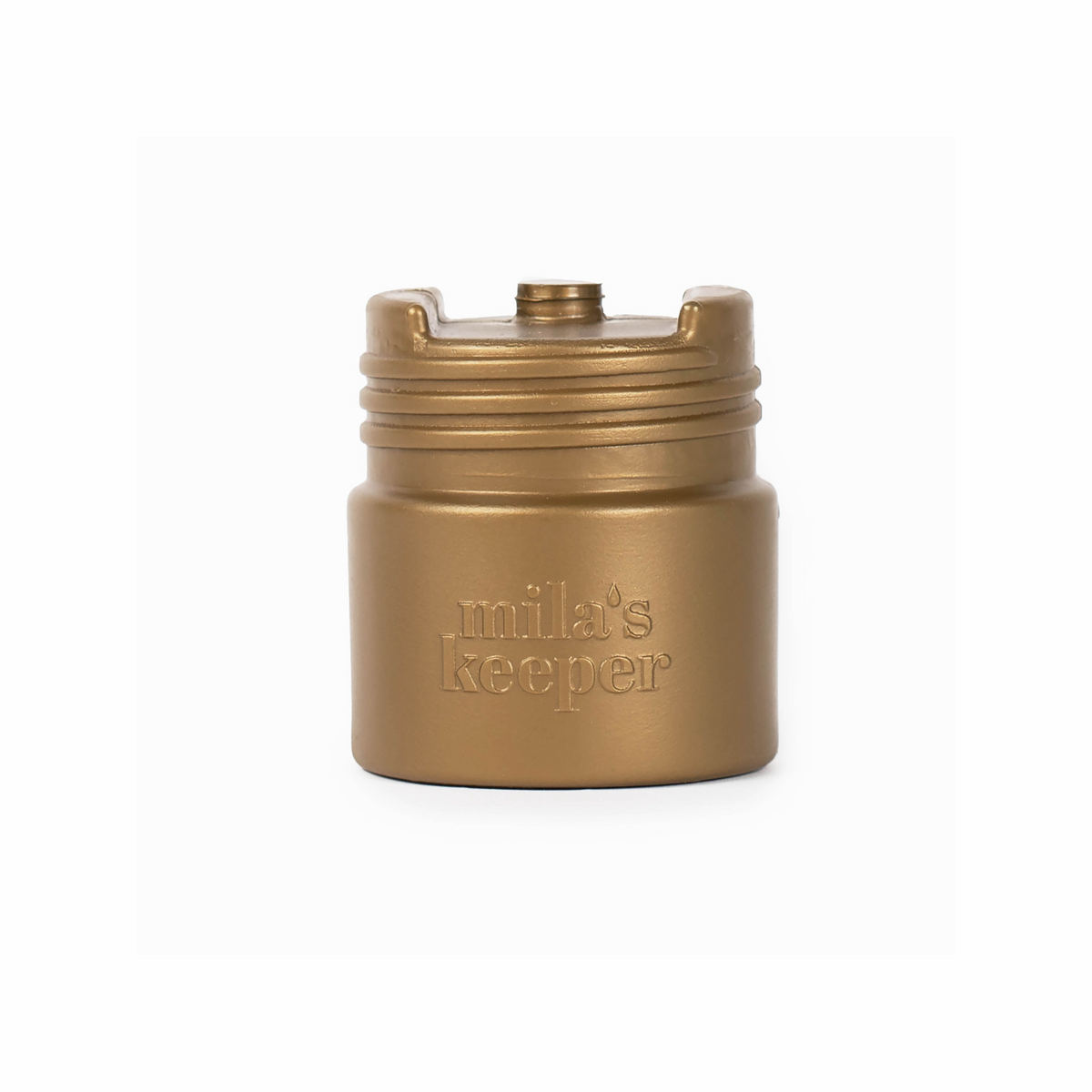Breastfeeding is a gift that keeps on giving. Let's look at some of the benefits for both baby and mama, month by month.
See Related: Glass Vs. Plastic Baby Bottles: The Debate
1. Preparing for breastfeeding before the baby arrives
There are many benefits of breastfeeding, and the more you know, the better. Since it doesn't come easy for everyone, it's good to know that you can start preparing months before the baby arrives.
Make sure you and your partner talk about your hopes and goals and remember that in general, where there's a will there's a way.
Getting pumped (pun intended) for breastfeeding during your pregnancy means you will want to reach out to those who have experience or expertise.
Speak with your doctor, doula, and/or midwife about your birth plan and your desire to breastfeed. Whether you're working with a lactation consultant or consulting with a registered nurse, they will have important input about breastfeeding and your overall health.
These individuals can share helpful techniques and model breastfeeding positions to deal with discomfort. Whether you're worried about milk supply issues or have sore nipples, these experts can provide support before the birth and during the postpartum period.
You will likely be able to overcome any breastfeeding difficulties with some support and determination.
Involving your partner in some of these discussions is helpful, so they learn how best to support you and participate in the process. A breastfeeding class as well as birthing or parenting classes can help a family feel more prepared.
It's important to receive regular prenatal care to improve health outcomes for you and the baby. This type of medical attention may help you avoid preterm birth.
If you plan to pump, there are some things to think about before your baby's birth. You may want to speak with your employer and know your workplace rights. Again, having some help from those who have been there before is a great asset.
Our mission at Mila's Keeper is to empower women so they can thrive during their breastfeeding journey. Whether that means providing the highest quality milk storage bottles or creating an Employee Benefit Program to help companies support and retain working moms, we're here for it all.
Our breast milk storage bottles and coolers were created for eco-minded moms who care about quality, comfort, and style. We know that pumping is important for breastfeeding moms who need to return to work or just want to share the joy of feeding the baby.

2. The first moments when babies benefit from that liquid gold
Newborn babies look to us for everything. No pressure, right?
Though we moms may not feel fully prepared, our bodies generally know just what to do. As mammals, we've gotten pretty good at providing for our little ones over several millennia.
In fact, our bodies make what you might call a special batch of breast milk.
The first phase of breast milk consists of a thicker, yellowish consistency substance called colostrum. Sometimes referred to as first milk, colostrum contains essential antibodies and nutrients for newborns. These help activate a newborn's immune system and regulate gut function in those first few days.
Colostrum (which is higher in protein than mature milk) has great benefits for newborns and helps them pass those initial sticky, dark stools (called meconium). Nursing your baby frequently in the first days will ensure they receive plenty of colostrum, and can also help you build your milk supply.
A mother's milk is specifically made to meet the developmental needs of her infant, and can be especially important for babies born early.
In addition to the nutritional benefits, breastfeeding often brings about a closeness that is critical for fostering a social and emotional bond. Parents hear a lot about the importance of skin-to-skin contact. So why is it so important?
The first moment of skin-to-skin contact is usually when a baby is placed directly on the mother’s bare chest (after being quickly checked and dried post-birth). There may be a blanket placed over them, but the important thing is that there is skin-to-skin contact.
It regulates the baby’s breathing and heart rate, stimulates the release of hormones in the mother, and much more. For babies born early, skin-to-skin contact can improve oxygen saturation, spur growth, and reduce stress levels.
This type of closeness provides ongoing benefits for moms and their babies. If a mother expresses her milk after a moment of skin-to-skin contact, it may increase volume and ensure there is enough milk for a subsequent feeding.
3. The first month helps babies thrive and moms bounce back
For the first month of breastfeeding, a mother's milk continues to provide important health benefits for the baby.
Babies who are breastfed generally have better health outcomes. During the first two months of life, they are less likely to get sick than formula-fed babies.
Breastfeeding is quite beneficial for an infant's digestive system. Human milk has antibodies that help protect against illnesses like infectious diarrhea, and the protein in it is easier to digest than the protein in infant formula. Breastfed babies tend to be less gassy or constipated.
A baby's risk of getting sick can be reduced with exclusive breastfeeding.
Breastfeeding a baby can minimize the occurrence of ear and respiratory infections and other kinds of colds as well.
As mentioned above the breastfeeding benefits aren't limited to the little one on the receiving end. The breastfeeding process is mutually beneficial. The mothers breastfeeding their infants also experience some perks.
When the baby latches on, nerve cells in the mother's nipples are stimulated, sending signals to her brain to release oxytocin. Oxytocin causes contractions in the muscles around the milk-making glands, sending the milk through the ducts. But that's not all it does.
Oxytocin increases relaxation, as it lowers anxiety and blood pressure. It plays a role in our formation of social bonds and facilitates feelings of love and affection.
It's also important to know that it can make you feel warm and will likely make you thirsty. So remember before you sit down to nurse that it's a good idea to grab a glass of water, or better yet, ask someone within earshot to bring you a beverage (because science said so!).
Together, oxytocin and prolactin produce pretty positive feelings when mothers breastfeed.
Oxytocin causes the contraction of the uterus, helping to bring it back to its regular shape and size more quickly. This may also have the effect of reducing postpartum bleeding. And, since breastfeeding burns a few hundred extra calories each day, it will often assist with losing some of the weight gained during pregnancy.

Bonus: Your Guide To Successfully Traveling With Breast Milk
4. Breastfeeding for the next few months make a difference
Since a baby's immunities are lowest between two and six months of age, it's especially important to pass along any potential protection you can. Even if (and perhaps especially if) a nursing mother has a cold, it's helpful to continue breastfeeding.
Your body makes antibodies and anti-viruses that protect you, and you will pass these through your breast milk. Breastfeeding confers additional immunity for the baby.
Breastfed infants have shorter hospital stays and better recovery rates with regard to various diseases as compared to formula-fed infants.
Babies who are breastfed have a significantly lower risk of SIDS (Sudden Infant Death Syndrome), which peaks in infants at two to four months. Though definitions and methodologies have changed over time, there's still ample evidence to support these claims. A meta-analysis found that the risk of SIDS among infants that were breastfed exclusively was 73% lower.
It is important to state that those findings were based on observational studies and do not prove direct causation. However, researchers have speculated about some plausible biological reasons for the correlation.
One reason could be that breastfed babies are more easily aroused from sleep than their formula-fed counterparts. A breastfed baby is more likely to have ample antibodies known as immunoglobulins that can protect against infection during the high-risk period for SIDS.
There's SIDS risk-reduction information that all new or expecting parents may want to peruse.
The first few months are a critical time for building up your baby's immune system. Interestingly, your breast milk adapts to the needs of your baby, providing nutrients that meet the needs of their developmental state.
It's important to keep feeding your baby breastmilk to minimize potential digestive issues and reduce ear infections, chest infections, and other respiratory illnesses.

5. Exclusively breastfeeding for the first six months is recommended by experts
Most experts, including the World Health Organization and the American Academy of Pediatrics, suggest that mothers exclusively breastfeed their babies for the first six months. Exclusive breastfeeding means not giving an infant any other food or drink aside from breast milk.
It's recommended that a mother breastfeed exclusively until around six months, at which point solid foods and water can be given to the baby.
Initially, only a small amount of solid food should be introduced. As time passes, more can be added to the mix to meet the growth and development needs of your baby.
Infant formulas do not contain all the antibodies, growth factors, enzymes, amino acids, and micronutrients that are present in breast milk. A baby that is exclusively breastfed for the first six months will have many health advantages.
When you breastfeed your baby, you are helping to strengthen your little one's immune system. In that way, breastfeeding protects your baby from some illnesses.
As mentioned above, there is research that indicates breastfed babies are less likely to get ear infections or develop stomach issues. A baby that is breastfed has a lower risk of asthma, obesity, and type 1 diabetes. While it's true that correlation does not equal causation, the numerous benefits of breastfeeding are relatively well established.
Breastfeeding exclusively is also much more affordable than formula feeding. Let's not understate that point, particularly when the prices on just about everything seem to keep creeping up.
Soon enough you'll introduce complementary foods, so enjoy those first six months when you can supply all that your baby needs to survive and thrive.
6. Aiming to breastfeed for at least a year
As a baby's nutritional needs change, so does the mother's milk. Breast milk continues to provide essential energy and protein. When you breastfeed your baby, you're helping ensure they get iron, vitamin A, and other key nutrients.
Up through the first year, and even a bit beyond, breastmilk will still be your baby's main source of nutrition.
Pumping and storing breast milk brings about additional freedom and flexibility. At Mila's Keeper, we were intentional about making sure our glass breast milk storage bottles were compatible with the leading breast pumps and nipples.
As your baby's appetite grows, you may need to nurse more often or offer them other foods to supplement their diet. After the six-month mark of a baby's life, solid foods can be an important additional source of nutrition.
While most babies can and will be consuming solid food by the time they turn one, breastfeeding continues to provide benefits for both baby and mama.
Breastfeeding appears to reduce the mother's risk of both breast and ovarian cancer, as well as type 2 diabetes, heart disease, and high blood pressure.
In a study by the Collaborative Group on Hormonal Factors in Breast Cancer, researchers concluded that for every 12 months that a woman breastfed, her risk of breast cancer decreased by 4.3%. Factors such as the age of the woman at her first child's birth, ethnic origin, and other personal characteristics examined were not significant indicators.

7. Breastfeeding beyond the first year
While many make the year mark their goal, there are plenty of reasons to continue your breastfeeding journey beyond that point in time.
Adding to the points made above about benefits for the mother, a study of parous women (women who have given birth) in southern China found that prolonged lactation is associated with a lower risk of ovarian cancer.
Other studies have found that breastfeeding leads to a reduced risk of thyroid and cervical cancer as well. If you breastfeed your baby or babies (especially if you breastfeed longer than 12 months total), it seems likely you will have a lowered risk of developing certain cancers.
Continuing to breastfeed a baby beyond a year means you're passing along those antibodies and anti-allergens for even more time. The World Health Organization recommends breastfeeding a baby for two years and doesn't set any explicit limit.
As your baby grows, you may also supplement breastfeeding with cow's milk and other foods.
When your baby nurses for over a year, you are still providing nutritious milk that makes a difference in many ways. Every exposure you have to germs and allergens enables you to pass along protection to the baby via your milk.
Continuing breastfeeding beyond a year has particular benefits for your baby's mouth development. For a baby, breastfeeding exercises different muscles than bottle feeding. Breastfeeding helps a baby to develop the structure and strength in their face, jaw, and tongue.
Every time you breastfeed your baby, it's an opportunity to bond. A combination of hormones, happy thoughts, and even the occasional gas bubble can bring about giggles and grins for both baby and mama when breastfeeding.
You and your baby will work out the details when it comes to deciding when to stop breastfeeding.
If you are just beginning your journey or giving it another go, here's a video that demonstrates how to help a baby get a good latch:
Keep Reading: 13 Best Gifts For The Working Moms In Your Life
--
A female-designed and female-run company, Mila's Keeper is on a mission to empower women to thrive during their breastfeeding journey by offering reusable, eco-friendly breast milk storage solutions for their day-to-day needs. Get the latest tips and info on Mila's Keeper products by following us on Facebook, Twitter, Instagram, Pinterest, and LinkedIn.

